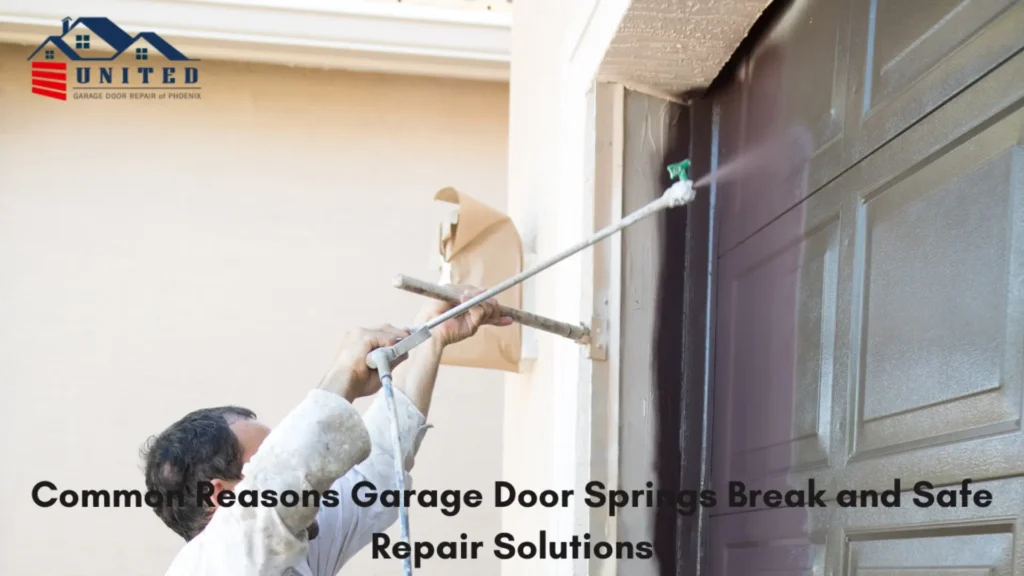Garage door springs are an essential part of your door’s operation, bearing the weight and ensuring smooth movement. Over time, these springs can wear out or break due to several factors, leaving your door inoperable. Understanding the reasons why garage door springs break can help you take preventive measures and find safe solutions to repair them. If you suspect a problem with your springs, timely garage door repair is crucial to avoid further damage and potential safety risks.
Wear and Tear Over Time
The most common reason for garage door spring failure is general wear and tear. Springs have a limited number of cycles, with one cycle being a complete opening and closing of the door. As these cycles accumulate, the tension in the springs weakens. Eventually, this wear causes the spring to snap, requiring immediate garage door repair. Regular maintenance and professional inspection can help monitor the condition of the springs, allowing you to replace them before they break and cause more significant problems.
Rust and Corrosion
Rust is another factor that significantly affects the lifespan of garage door springs. When moisture accumulates on the springs, rust can form and weaken the metal, increasing friction during movement. This added strain makes the springs more susceptible to breaking. Preventive measures like applying a silicone-based lubricant to the springs can reduce rust and extend their life. If rust has already compromised the springs, calling a garage door repair service to safely replace them is essential for both functionality and safety.
Improper Maintenance or Installation
A common reason garage door springs break prematurely is improper maintenance or faulty installation. If the springs are not correctly calibrated or if the wrong type of spring is used for the door’s weight, it can lead to an early breakdown. Routine garage door repair services ensure that the springs are properly adjusted and maintained, keeping the door balanced and preventing unnecessary stress on the system. Hiring a professional to install or replace springs also minimizes the risk of improper installation.
Temperature Fluctuations and Extreme Weather
Drastic temperature changes, particularly in colder climates, can cause metal to expand and contract, weakening the garage door springs over time. Extreme cold can make the springs more brittle, increasing the likelihood of a sudden break. During seasons with significant temperature swings, it’s essential to keep an eye on the performance of your garage door and consult a garage door repair expert at the first sign of trouble. Staying proactive can help prevent sudden failures and ensure smooth operation year-round.
Learn more:
How Weather Impacts Your Garage Door and When to Consider Repairs
The Value of Regular Garage Door Repair to Avoid Expensive Fixes

